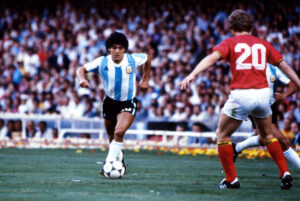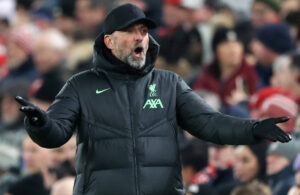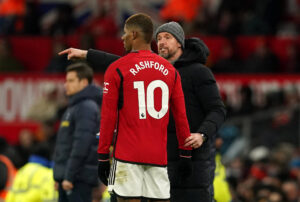When Spurs and Chelsea meet in the FA Cup semi-final this weekend, the encounter will evoke memories of previous Wembley meetings between the two clubs. In total, they have played each other four times previously at Wembley—one FA Cup final, two League Cup finals and one FA Cup semi-final—with the overall score at two wins apiece. Whoever wins this weekend, therefore, will not only have reached the FA Cup final, they will also have nudged ahead in the overall tally.
2015 League Cup Final: Chelsea 2 Spurs 0
The most recent Wembley meeting between Chelsea and Spurs was in itself a fairly unremarkable affair. Chelsea won relatively easily through goals by John Terry and Diego Costa either side of half-time, on their way to a Premier League and League Cup double that year under José Mourinho.
It is perhaps only in retrospect that the game’s true importance can be gauged, as it marked the first and so far only final that Spurs have reached under Mauricio Pochettino. Although Spurs ultimately succumbed fairly meekly on the day, the mere fact that they were even at Wembley was a testament to the progress that they had made under Pochettino during his first season in charge of the club.
Even more importantly, the line-ups for that game in 2015 show how much both teams have changed in just over two years. The difference between the 2015 Wembley meeting and the game this weekend is most pronounced when the two Tottenham midfields are compared.
Almost all of Tottenham’s starting midfield five from the 2015 final have now left the club, with the notable exception of Christian Eriksen. Pochettino has substantially upgraded on the likes of Ryan Mason, Nacer Chadli and Andros Townsend by replacing them with Mousa Dembélé, Eric Dier, and, most importantly, Dele Alli. Spurs now have much greater muscle and goal-scoring threat in their midfield, which may be their biggest cause for optimism ahead of this weekend’s rematch.
2012 FA Cup Semi-Final: Chelsea 5 Spurs 1
Playing at the game’s most famous stadium should be reserved for finals, but the FA’s spending over a billion pounds on the new Wembley means that semi-final meetings will take place there in the near future. This clash was one of the most one-sided semi-finals ever to take place at the new ground.
The fact that Chelsea won the FA Cup that year is often forgotten, because within a fortnight they had won the Champions League by beating Bayern Munich at their home ground on penalties. Nevertheless, the Blues were undoubtedly given a boost by winning a first trophy under then-caretaker manager Roberto Di Matteo, especially as they had reached the final in the first place by beating their loathed London rivals Spurs so emphatically.
The final score line is somewhat misleading, in that Chelsea were only ahead by a single goal when Spurs were floored by a controversial “goal” by Juan Mata which had not crossed the line. Nevertheless, in the days before goal-line decision systems, the referee gave the goal and, coming just before half-time, it totally demoralised Spurs, who shipped another three goals in the second half en route to their biggest ever defeat at Wembley.
2008 League Cup Final: Spurs 2 Chelsea 1 (after extra time)
It is remarkable to think that, in terms of silverware, Juande Ramos is the most successful Spurs manager of the 21st Century, simply by virtue of winning Tottenham’s only trophy in that time: the 2008 League Cup. The fact that the lone piece of silverware for Tottenham since 1999 came at the expense of Chelsea makes it extra special in the eyes of Spurs fans.
The 2007-08 season was the ultimate “nearly” season for Chelsea, in that they nearly won a treble of League, League Cup and Champions League but ended up winning nothing. The Blues were actually defending the League Cup, having won the trophy against Arsenal at Cardiff’s Millennium Stadium (now the Principality Stadium) the previous season. Against the other North London side, however, they could not retain the cup as Spurs came from behind to win in extra time.
After star strikers Didier Drogba and Dimitar Berbatov had exchanged goals in normal time, it was an unsung and now largely forgotten Spurs hero who got the winner. That man was Jonathan Woodgate, who should have had a stellar career after his defensive excellence for Leeds and then Newcastle secured a move to Real Madrid, only for it to be curtailed by injury problems. Nevertheless, when Woodgate scored, he had not only won the only trophy of his career but scored the goal that secured it.
1967 FA Cup Final: Spurs 2 Chelsea 1
The only time that these two great London rivals have met in an FA Cup final was the year after England had won the World Cup, and in its own more parochial way this final was also historic. That was because it effectively marked the end of the great Spurs side of the early to mid-1960s, which of course had won the legendary League and Cup double in 1961, and the beginning of the fine (if not quite great) Chelsea side of the late 1960s and early 1970s.
For Spurs, the 1967 victory was their third FA Cup win in seven years. They had won the trophy in 1961 and 1962, and then claimed the first ever European trophy by a British team, the 1963 Cup-Winners-Cup, which they won in marvellous style against Atlético Madrid. By 1967, however, the magnificent team of the early to mid-1960s was beginning to creak and show its age. Nevertheless, in 1967 the experienced Spurs side still had more than enough on the day to hold a largely youthful Chelsea team at bay.
Whereas Spurs went into decline after this high-water mark, at least relative to their achievements earlier in the decade, Chelsea were on the rise. Tommy Docherty had led them to the 1967 FA Cup final, but within a few months he was gone and it was his assistant, Dave Sexton, who eventually led Chelsea to their first ever FA Cup win in 1970 and the even more historic victory in the Cup Winners’ Cup final the following season; Chelsea’s last piece of silverware before they embarked on a miserable drought of their own, which eventually ended with their second FA Cup win in 1997.
This weekend
History only serves sentimental purposes in football. After all, players, managers and even whole teams change all the time, and the fact that the two clubs are currently tied at two apiece in their Wembley shoot-outs should have little or no influence on the outcome of Saturday’s match.
Nevertheless, when the two meet again this weekend, history will hang heavy, or at least heavier, for Spurs, precisely because they have now gone nearly a decade since winning any trophy at all and more than 25 years since winning the FA Cup, which in the 1960s and again in the early 1980s seemed to be exclusively in their possession.
In the last 20 years, Chelsea have cast off their own record of under-achievement, which had lasted for nearly the entire history of the club. Now Tottenham must start making some new history themselves. Saturday would be a good time to start: if they can beat Chelsea and reach the FA Cup final, it will not only give them a chance to win the FA Cup itself but a huge psychological advantage over Chelsea in the title run-in. Simply put, if Spurs can beat Chelsea this weekend their fans can legitimately dream of winning another double for the first time in nearly sixty years.
Main Photo






